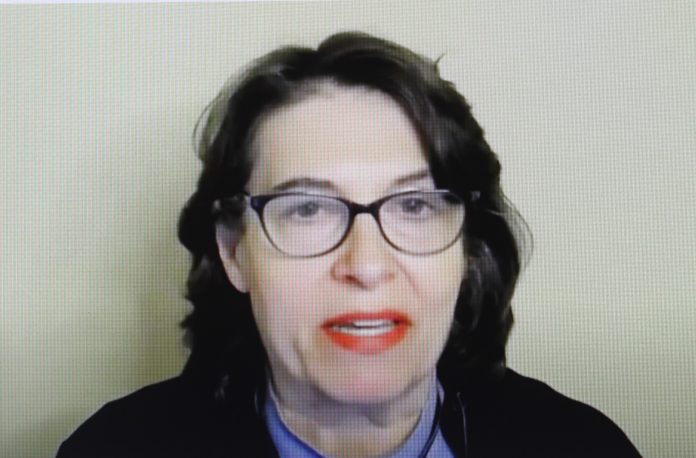TABLE OF CONTENTS
From Jew jokes to anti-Zionism and anti-Israel comments to online harassment, Jewish teenagers in Mercer County said they have been exposed to antisemitism, according to a recent survey.
More than 70% of survey participants said that antisemitism is “at least sometimes a problem” in their school, based on the survey conducted by the Jewish Community Relations Council of Greater Mercer County and the Jewish Federation of Princeton Mercer Bucks.
The survey results were shared with the Princeton Public Schools Board of Education at its Nov. 21 meeting. The survey participants attended schools in Mercer County, but Princeton public school students made up the largest share.
The survey was conducted last spring, before the Oct. 7 terror attacks on Israel by Hamas, said Naomi Richman. She chairs the Jewish Community Relations Council of Greater Mercer County.
Richman said the survey was launched in response to the rise in antisemitism nationally. The Oct. 7 attack was the furthest thing from anyone’s mind when the survey was conducted. However, antisemitism has increased by around 400% since the attacks, she said.
“We heard anecdotal reports from parents and teens that made us want to understand how widespread antisemitism is among our teens, and not rely on anecdotal reports,” she said.
A similar survey was conducted in Kansas City several years ago, and the Jewish Community Relations Council of Mercer County sought to build on it.
The Mercer County survey attracted 69 respondents in grades 6-12, she said. It was conducted informally and publicized through local synagogues, other Jewish organizations and networking.
The 69 respondents were almost evenly distributed between middle school and high school students, and between boys and girls. Only 3% of the students said they were not involved in Jewish activities to some degree outside of their homes – from summer camps to youth groups, Richman said.
The majority of respondents said antisemitism was a problem in their school at least some of the time, Richman said. It was reported as a problem “sometimes” by 59%; as a “serious problem” by 12%; and “not a problem” by 29%.
“Nevertheless, 87% of students said they feel comfortable expressing their Jewish identity at school,” Richman said.
Of those who had encountered antisemitism in school, 45 students said they had experienced it as Jew jokes and 35 students said it was Jewish stereotypes. Ten students said they had encountered antisemitic graffiti.
Nearly 35 students said it was Nazi or Hitler-related comments or gestures, and about a dozen students said they had experienced Holocaust denial or distortion. Also, 25 students reported hearing antisemitic phrases.
Students also experienced antisemitism online, mostly on TikTok and Instagram, Richman said. There were a few instances on X, formerly known as Twitter, and less than a handful on Facebook.
Of the 69 students who took the survey, 42% said they would report an antisemitic incident to an adult at school, but 70% said they would “probably or definitely” report it to a parent or guardian, she said.
Asked what would make them feel more comfortable in responding to antisemitism at school, many students said they would like to know that their school understands antisemitism. They would like to have a teacher or counselor to whom they could report incidents.
Other students said they would like to have non-Jewish students learn about antisemitism, and they themselves would like to learn about forms of antisemitism and how to respond to it.
Richman read some verbatim quotes from students to illustrate antisemitic attitudes toward Jewish students. One student reported being called slurs, being stereotyped, being made fun of and accused of having loyalty to other Jews and Israel.
“During a history class, a classmate told me I could have been in the ovens and waited for a reaction,” one student said.
Richman said the students who made those comments are young and may not have the maturity to realize the horrors suffered by Jews during the 1930s and 1940s.
“They may not realize the harm they are causing to their Jewish peers by using those terms and memes,” she said.
But there are steps that can be taken to combat antisemitism, beginning with raising antisemitism awareness with educational leaders and the public, she said.
“There is antisemitism out there and I think that it is really important that DEI (diversity equity and inclusion) curriculum should include Jewish students,” Richman said.
Also, Jewish students need to feel that they are supported in the classroom and outside of the classroom – in the hallways and on the practice fields, Richman said.


